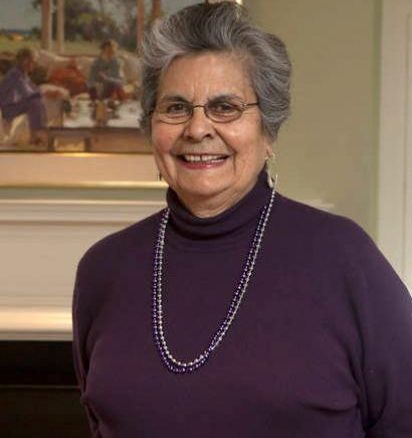Nearly 200 graduating college seniors will celebrate the successful completion of their undergraduate careers at UW-Madison on Friday, May 12 at 5 p.m. in Union South’s Varsity Hall.
Hosted by the Office of the Vice Provost and Chief Diversity Officer, the fourth annual Graduation Recognition Ceremony will celebrate the Division of Diversity, Equity and Educational Achievement’s (DDEEA) scholars in the CeO (Center for Educational Opportunity), Chancellor’s and Powers-Knapp Scholarship programs, First Wave Hip-Hop and Urban Arts Learning Community, Pathways, PEOPLE (Precollege Educational Opportunity Program for Learning Excellence) and Posse programs.
Overall, about 290 students are graduating from DDEEA scholarship and service programs. A reception on the Union South Terrace will follow. The event can be viewed online via Livestream.
Bringing this year’s charge to the graduates as keynote speaker will be André De Shields (English ’70), who has a distinguished career spanning nearly 50 years as an unparalleled actor, director, choreographer and educator. An esteemed alumnus of both the University of Wisconsin-Madison and New York University’s Gallatin School of Individualized Study, De Shields received a UW-Madison Honorary Doctor of Fine Arts in 2004. His numerous accolades come yearly, including a second Honorary Doctor of Fine Arts from SUNY-Buffalo State College, the 2007 Village Voice OBIE Award for Sustained Excellence of Performance, the 2009 National Black Theatre Festival’s Living Legend Award, a 2012 Fox Foundation Fellowship in Distinguished Achievement and the Black Theatre Network’s 2016 Winona Lee Fletcher Award to name just a few.
A multiple Tony Award nominee, De Shields is best known for his show-stopping performances in six legendary Broadway productions: Impressionism; the world premiere of Mark Medoff’s Prymate; The Full Monty; Play On!; Ain’t Misbehavin’; and in the title role of The Wiz. His career also includes film and television credits as well as the concert stage with the St. Louis Symphony at New York’s Carnegie Hall and the BBC Symphony at London’s Royal Festival Hall.
As an educator, he has served as Adjunct, Distinguished and Visiting Professor at New York University, SUNY-Buffalo State College, CUNY-Hunter College, the University of Michigan-Ann Arbor and Southern Methodist University. He was the director of Carnegie Hall’s JAZZED—an educational strategy for restoring the Arts to New York City’s public schools.
This year, the Office of the Vice Provost & Chief Diversity Officer and Division of Diversity, Equity & Educational Achievement is honoring Ada Deer with the Outstanding Alumni of Color Award for her professional career and personal contributions to the community as excellent examples of the Wisconsin Idea at work.
A nationally recognized social worker, community organizer, activist and political leader, Ada Deer is a champion of Indian rights who led the successful campaign to restore federal recognition of the Menominee Tribe. As head of the Federal Bureau of Indian Affairs, she participated in the development of United States policies on international human rights and supported a strong national position on the rights of indigenous peoples everywhere.
Born in Keshena, Wisconsin, in 1935, Ada Deer was the first Menominee undergraduate to receive a degree from the University of Wisconsin-Madison in 1957. She became the first Native American to receive a Master of Social Work from Columbia University in 1961.
In 1992, she became the first Native American woman in Wisconsin to run for Congress, winning the Democratic primary without political action committee funding. The following year, Deer was appointed the head of the Federal Bureau of Indian Affairs, the first Native American woman to hold that position. While in office, Deer helped set federal policy for more than 550 federally recognized tribes, approved tribal-state gaming compacts, extended recognition to 12 tribes, and settled a century-long border dispute with the Crow Tribe that restored tribal lands and provided compensation for lost coal reserves and revenue.
Both before and after her years in office, Deer taught classes at the University of Wisconsin-Madison School of Social Work. She developed groundbreaking classes in the 1970s on Native American issues and multiculturalism, and created the first program to provide social work training on reservations. She also co-founded the Indian Community School in Milwaukee, organized leadership workshops for Indian women, and helped to implement Indian participation in the Peace Corps.
In January 2000, Deer became director of the American Indian Studies Program at UW-Madison. In 2007, Deer received the Wisconsin Historical Society’s Robert and Belle Case LaFollette Award for Distinction in Public Service. She is currently a fellow at the Harvard Institute of Politics at the John F. Kennedy School of Government.
“As a Wisconsin Badger, Ada Deer modeled what it means to push boundaries, create solutions and redefine the world and its social/cultural and political trajectory,” Sims continued. “The legacy of her work carries on through classes and training, federal policies, our understanding of social justice and the tradition of putting Wisconsin on the map. She is a precious jewel in our crowning achievements.”
Overall, more than 4,800 federally defined minority students are working to earn undergraduate degrees from UW-Madison. In many of the Division’s programs, the majority of enrollees are the first in their families to earn a college degree.
“Having diversity and inclusion in higher education is clearly a necessity across the board,” said Ruby Paredes, Associate Vice Provost for Diversity and Climate, who has worked on campus diversity for more than 25 years and helped to create and launch several UW-Madison programs like PEOPLE. “We know that our efforts are making a difference through the graduates we send into the world prepared to work for a better future and in all the lives they impact in an essential and permanent way. It’s the right and an inspiring thing to do.”




























